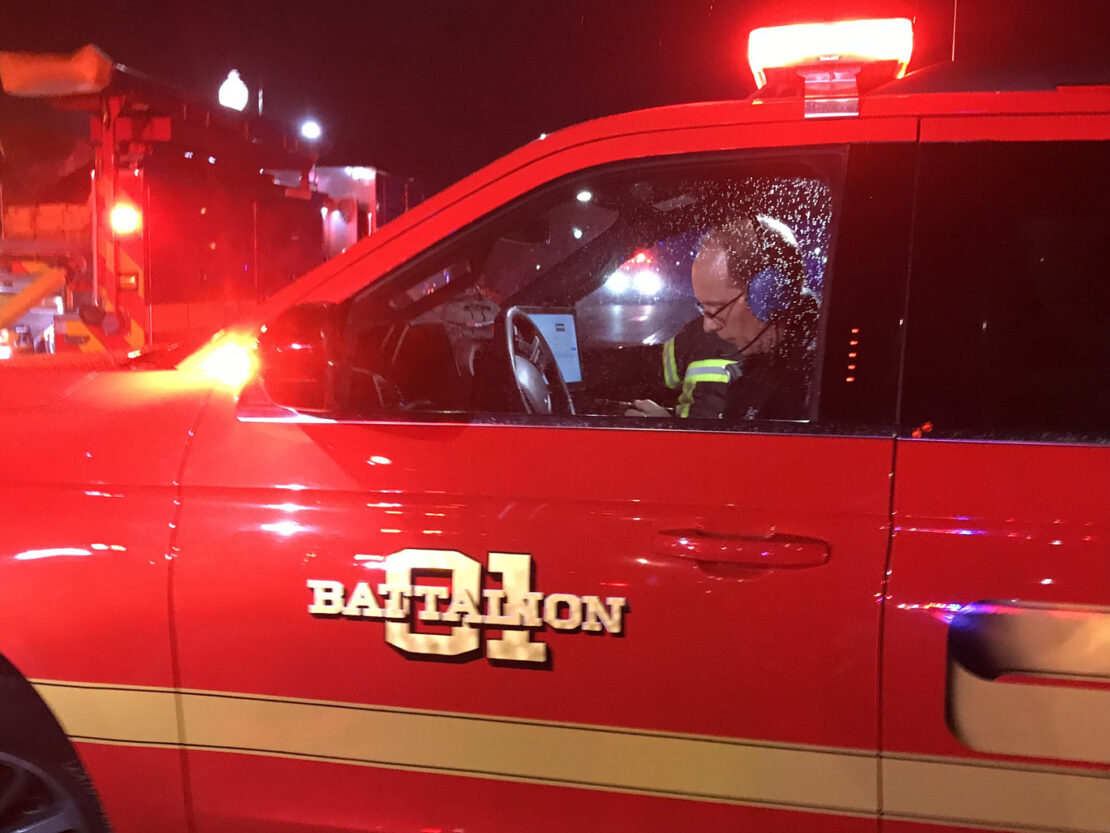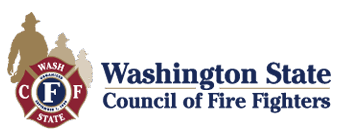
Trigger Warning: This article discusses a child’s accidental death and the emotional toll of responding to traumatic calls. Reader discretion is advised.
“If we don’t tell, we don’t learn, we don’t know.”
In the fire service, it’s never a question of if you’ll face a tough call, but when. On July 13, 2022, L468 Olympia Fire Battalion Chief JD Young encountered the call that would stay with him above all others.
JD’s path to firefighting began in Washington, where he studied forestry at the University of Washington with an emphasis on wildland fire suppression. He spent summers with the Department of Natural Resources and volunteered as a reserve firefighter in Brego Springs, California, while his wife served in the Navy and he attended the fire academy. In 1995, he returned to his hometown of Olympia and joined the Olympia Fire Department, promoted early to Shift Commander and Battalion Chief for his last 20 years. Now retired, JD reflects on his experience with one unforgettable call.
“It was truly not a job. I loved it. I still do. I never considered it to be work,” JD says. “The camaraderie, the volume and types of calls, everything… And so, in that process, I didn’t realize how much some of the calls hung on. You start hearing those around you, and they start piling up.”
The Call
On that July day, JD, a Battalion Training Chief, was covering for the Shift Commander who was attending active shooter training. “It was a role I commonly filled and was very comfortable with, so that was just a normal day for me. It’s what I’d done for years.” Most of the department’s units were tied up in training, leaving fewer crews available for emergency responses.
“This call was in an area that didn’t have a response unit at the time because they were taking part in the training. It was a long response time for the crews getting there anyway. The nature of the call was… a child,” he recalls, his voice breaking. JD is silent for a moment before he continues: “That was all we knew. Where it was, I was the closest unit. For me, it was a no-brainer to go out on this call. I knew I’d be the first one there. I knew I’d be by myself for a while.”
He arrived with a young Olympia police officer, and the two were alone for about five minutes before other crews reached the scene. “At the time, it was ‘I’m the only one here, I’m the only one who knows anything about emergency medical,’ and carrying all my gear up there, running up the driveway, my sole focus was ‘What can I do to maintain the life of this kid?’”
“Some of the guilt I carry now is because of the things I had to do to make sure that happened. For example, while I gathered my equipment, I had to have the officer peel the child away from her mom. That guilt… having to do that… that’s hard for me.”
It was a devastating call: a young girl had been accidentally run over by her father’s vehicle on her birthday. Tragically, she lost her life.
Years later, JD reflects on this moment with tears in his eyes. “It was just… just horrible.”
Aftermath
JD directed care for the police officer, transitioned into incident command, and supported the family as additional crews arrived. Unlike other calls, he faced this call with limited support: “The challenge, afterwards, for me was, even if you’re just riding with a two-person crew, you get to eat that pie together, right? I got there, and I was eating that pie by myself. That was one of the big stressors. As a single arriving responder, I did all of that and directed someone who is also a first responder but doesn’t have EMS experience.”
Once the crews arrived and the child was transported, JD stayed behind, cleaning up supplies. “I remember kneeling on the ground and saying, ‘I’m done’ and just breaking down.” Those who arrived at the scene joined him. “They didn’t really say anything. They didn’t have to. They just gave me a hug while I stared at the dirt.”
JD’s Chief of Operations arrived on scene. “I was relieved on-duty and drove back to the station, which I don’t remember.” Back at the station, Peer Support members, chaplains, and a trauma counselor were there to support him and others affected before his wife and son were called to take him home. “They came down to pick me up because there was no way I could drive home.”
The Role of Peer Support
JD credits Olympia Fire’s Peer Support Team and the WSCFF Behavioral Health Committee (BHC) with helping him through his darkest moments: “(WSCFF BHC Co-Chair) Erin Johnson was on the call with me. She didn’t see what I saw at the beginning, but there was a lot of shared context there. Having that initial reassurance, a shoulder to cry on, was huge. This was more of an emotional release, and her acknowledgment that this was not a normal call was very comforting. Then, once we got back to the station, Peer Support kept coming in, checking in. At no point was I left alone.”
His colleagues and the chaplains kept checking in, sometimes simply sitting with him without asking questions. Others called weeks later or caught up during trainings. That ongoing connection made a difference.
Changing the Culture
When JD started his career, conversations about trauma were almost nonexistent. “Back then, we didn’t talk about PTSD, death, dying, or carrying calls with us. It was more of a ‘suck it up, rub dirt on it, and if you can’t handle this, maybe this isn’t the job for you.’”
Today, he sees significant progress. Peer Support teams are trained, selected by peers, and available from the start of a firefighter’s career. Professional counselors are integrated into post-incident care, and leaders are more intentional about acknowledging the cumulative toll of trauma. “I think it’s really important, as a Shift Commander who’s running through these calls, to know that someone struggling is hooked up with Peer Support, and that I can do the steps that I need while we’re waiting for Peer Support.”
JD notes, “Mental health is no different than rolling an ankle on the fireground. If you can’t cognitively think through a problem, you’re not helping anybody. We must heal ourselves and seeing that shift over the years has been really encouraging.”
The Path Forward
JD continues to see a trauma counselor and relies on healthy habits like hiking, exercise, and maintaining social connections. He compares exposure to trauma to water filling a bucket: coping strategies, healthy habits, and support systems are the holes that prevent it from overflowing, which could lead to PTSD or worse.
“Before the incident, I was hiking one to two ten-mile hikes per week, no podcasts, just my dogs and me going into nature. After the call, it was too acute to do that with my day job, but the department was very supportive of whatever I needed. I worked out at lunchtime. As the training chief at that time, I didn’t have to respond to standard calls, though I would drop work for major incidents. And that helped.”
JD has also learned to recognize his triggers. “Now that I know my triggers, I can tailor my emotional response. One of my triggers is crying—the hysterical crying of the mom and the girl’s older brother. I didn’t realize that was a trigger until probably a year after the event, because I was so busy working. Your brain does what it does to protect itself. Now I’m responsible for making that change, whether it’s turning off a TV show or not watching the news-whatever it is.”
His advice to fellow firefighters is straightforward: stay connected, utilize your resources, and act without delay. “It’s not a question of if you’ll experience workplace trauma. It’s a matter of when, whether it’s Day One or Year Thirty, anywhere in between. Understand what you’re getting into. Be proactive, because you will see things that most people should never see, and your emergency can still be your emergency even if nobody else is affected. It doesn’t have to affect everybody to qualify as an incident where you need treatment or Peer Support. Know there are resources out there: through the WSCFF, your department, your organization, or Peer Support. Get ahead of it. Talk about it.”
To the more senior group, JD offers this guidance: “You will find a call, or it will catch up to you at some point. Be proactive. Do what you need to do. If it’s working, great! But understand, our goal should be to outlive the financial resources we set aside for retirement. If you see the risks coming, seeking treatment opens that gate so you can keep going.”
He adds, “For a brother or sister who’s just starting, be proactive. Know that you’re going to run into things. Make sure you have good, healthy habits. If you think there’s a problem, get professional help.”
A Message from Behavioral Health Co-Chair Erin Johnson
Why should we care about behavioral health? Have you ever met someone in the fire service who said, “the fire service changed me?” Firefighters are resilient until they are not. We can do everything right and still need help. Repeatedly dealing with trauma can alter our brain chemistry and behaviors.
This is why the WSCFF created a Behavioral Health Committee. This allows Peer Support coordinators across the state to begin working together to support members as they navigate the trauma and stressors that come with being a firefighter.
As a Peer Support coordinator, we walk with our brothers and sisters during times when their resilience has worn thin. You don’t have to face trauma alone. Your Peer Support Team is not your therapist; they are there to listen and connect you to the resources you need.
Here is a list of resources that you can find throughout Washington State and the country:
Treatment Centers that Help with Trauma and Addiction
- IAFF Center of Excellence: www.iaffrecoverycenter.com
- Deer Hollow: deerhollowrecovery.com
- First Responder Wellness: firstresponder-wellness.com
Preventative Support Programs
- Stronger Families: strongerfamilies.com
- Wounded Warrior
- AA Support Groups
Crisis Support
- Safe Call Now: 206-459-3020
- Code4NW: 425-243-5092, or visit code4nw.org
- National Suicide Prevention Lifeline: 1-800-273-TALK or 988-Lifeline, or visit 988lifeline.org
- Crisis Text Hotline: Text HOME to 741741 to connect
If you’re interested in Peer Support and want to speak to someone further about the Behavioral Health Committee, contact and
